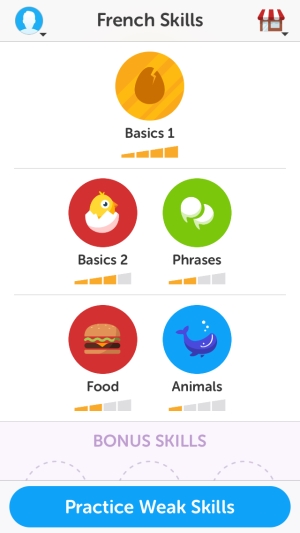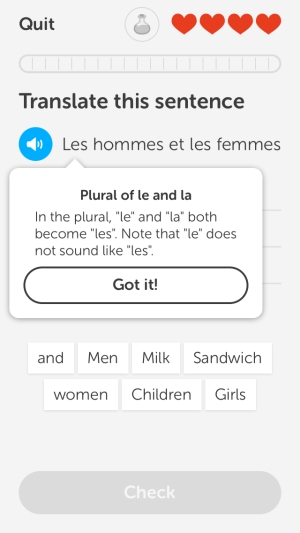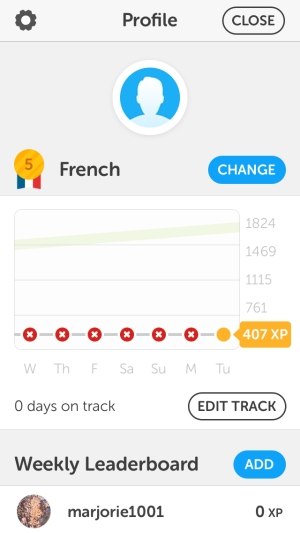5 Things to Learn About E-Learning From Duolingo
Duolingo’s a free app for learning languages. There are versions available for the iOS and for Android and at the time of writing you can use it to learn French, German, Spanish, Portuguese and Italian.
Duolingo is successful - it was the Apple ‘App of the Year’ in 2013 and Google Play’s ‘Best of the Best’ - so maybe there are some good lessons in the way the app has been put together that could be applied to any new online learning platform.
- It feels like a game with the emphasis on completing quick challenges rather than reading (or listening to or watching) large amounts of information. The e-learning is broken into lots of bite-size tasks so you’re always doing something, getting feedback and moving up through the levels.
- The tasks themselves are not that sophisticated. There’s a limited set of ‘learning interactions’ - drag & drop, fill in the blanks, pick the right answers form a list, that kind of thing. There’s audio and there are exercises that get you to speak into the mic for pronunciation but there’s no flashy graphics or video. You get familiar with the format of the tasks quite quickly but that seems to be a good thing - a smaller set of familiar formats and you keep going for longer.
- There’s a visual ‘learning map’ that shows you what you’ve done and what remains to be done. Again it’s simple and it shows you just what you need to know: it’s much better than any kind of expandable menu tree or a table with rows of text in it.
- The ‘gamification’ is great. You get badges and other rewards as you move up the levels. It’s fun getting the rewards though it took an 11 year old to show me that I could spend my ‘Lingots’ in a ‘shop’ on new outfits for the little Owl character that is the Duolingo guide.
- There’s social networking/interaction to encourage motivation. Duolingo lets you find and connect with friends and then shows you a simple chart so you can compare progress and see who’s on track.



The interesting thing about Duolingo is that by getting the ‘scaffolding’ in the app right - the social stuff, the rewards and the progress tracking - the content itself can actually be relatively simple. So you could definitely imagine that it wouldn’t be that difficult or expensive to create the content.
The obvious questions though are how effective is it as a way of teaching languages and how easy would it be to use the same format with other kinds of material? I don’t know about the answer to the first but I’m sure the approach could be applied to other subjects. Maths in particular might work but even something completely bespoke like a company induction programme could probably be organised in a way that allows it to be presented as a series of challenges with instant feedback, reminders to keep on track and rewards to keep people motivated.

